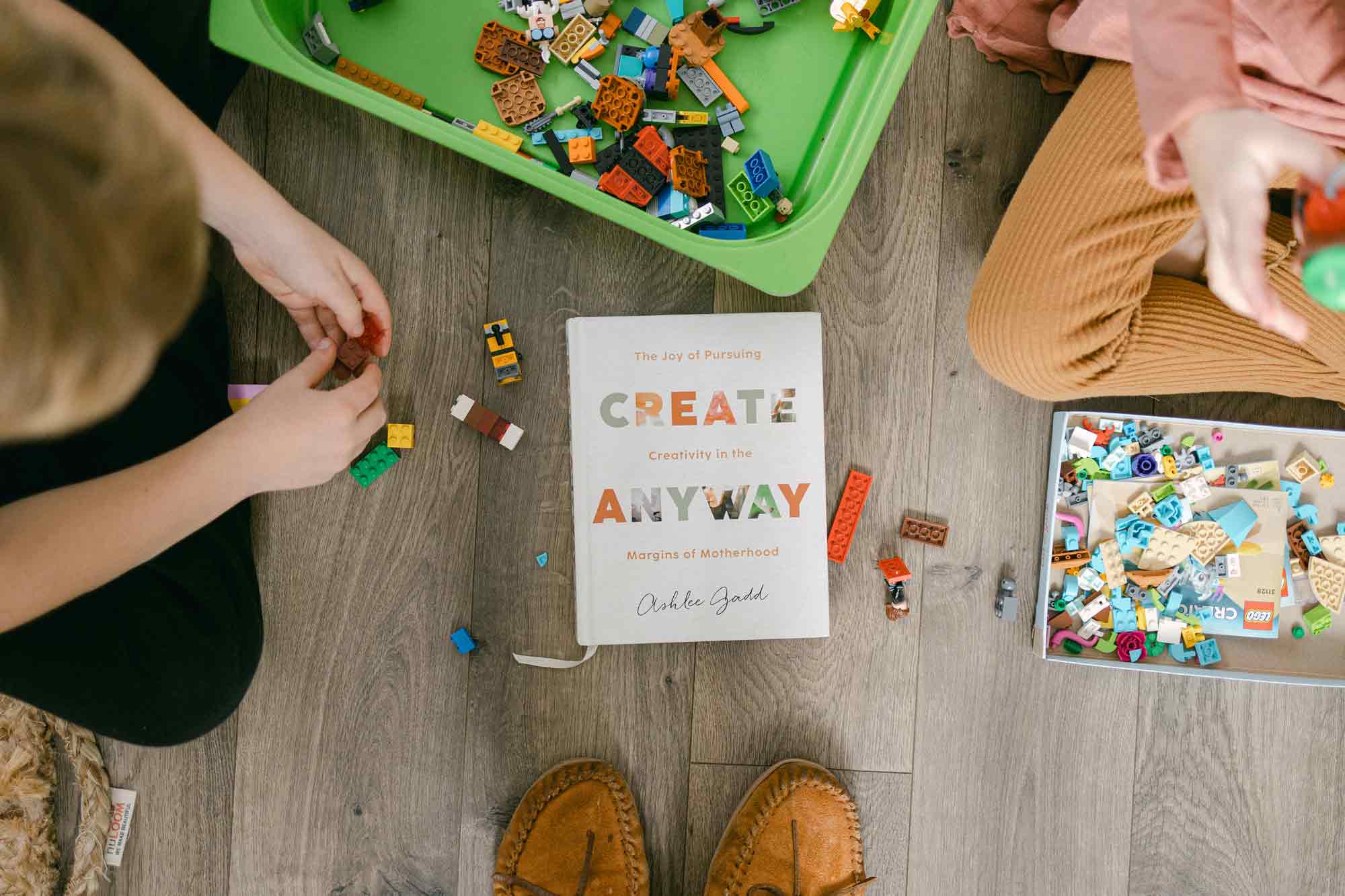One of the most inspiring perks we’re lucky enough to have at Buffer is a free Kindle for each teammate (and her family!) and as many free Kindle books as you like, no questions asked.
When we share what we’re reading at Buffer on our Pinterest page or in our Slack community, the selections often tend to skew more toward non-fiction—you can generally find teammates reading books that help us improve at our jobs, understand our world better and become more productive, for example.
What’s interesting—and maybe a bit counterintuitive—is that reading fiction can provide many of those same self-improvement benefits, even while exploring other worlds through stories that exist only in the mind.
In fact, the practice of using books, poetry and other written words as a form of therapy has helped humans for centuries. Fiction is a uniquely powerful way to understand others, tap into creativity and exercise your brain.
The next time you feel even a tiny bit guilty for picking up a work of fiction instead of a self-help book, consider these nine benefits of reading fiction.
1. Empathy: Imagining creates understanding
To put yourself in the shoes of others and grow your capacity for empathy, you can hardly do better than reading fiction. Multiple studies have shown that imagining stories helps activate the regions of your brain responsible for better understanding others and seeing the world from a new perspective.
“And knowing you’d all be talking and feeling and commiserating, I knew we should say something about it, lest our silence say something we didn’t mean to say or not say. So I’ll say this: In some way, we will see Glenn, some version of Glenn, or parts of Glenn again, either in flashback or in the current story, to help complete the story.” When the psychologist Raymond Mar analyzed 86 fMRI studies, he saw substantial overlap in the brain networks used to understand stories and the networks used to navigate interactions with other individuals.
“…In particular, interactions in which we’re trying to figure out the thoughts and feelings of others. Scientists call this capacity of the brain to construct a map of other people’s intentions ‘theory of mind.’ Narratives offer a unique opportunity to engage this capacity, as we identify with characters’ longings and frustrations, guess at their hidden motives and track their encounters with friends and enemies, neighbors and lovers.”
That’s because when we read about a situation or feeling, it’s very nearly as if we’re feeling it ourselves. As Fast Company reports: “Two researchers from Washington University in St. Louis scanned the brains of fiction readers and discovered that their test subjects created intense, graphic mental simulations of the sights, sounds, movements, and tastes they encountered in the narrative. In essence, their brains reacted as if they were actually living the events they were reading about.”
2. Disengagement: Reading is most effective for stress
Your brain can’t operate at maximum capacity 24/7—far from it. We all need periods of disengagement to rest our cognitive capabilities and get back to peak functionality.
Tony Schwartz talks about this as one of the most overlooked elements of our lives: Even the fastest racing car can’t win the race with at least one or two great pit stops. The same holds true for ourselves. If we don’t have “pit-stops” built into our days, there is no chance we can race at a high performance.
And reading fiction is among the very best ways to get that disengaged rest. The New Yorker reports that: “Reading has been shown to put our brains into a pleasurable trance-like state, similar to meditation, and it brings the same health benefits of deep relaxation and inner calm. Regular readers sleep better, have lower stress levels, higher self-esteem, and lower rates of depression than non-readers.”
Research at the University of Sussex shows that reading is the most effective way to overcome stress, beating out other methods like listening to music or taking a walk.
Within six minutes of silent reading, participants’ heart rates slowed and tension in their muscles eased up to 68 percent. Psychologists believe reading works so well because the mind’s concentration creates a distraction that eases the body’s stress.
3. Sleep: Regular readers sleep better
In fact, the kind of relaxed disengagement that reading creates can become the perfect environment for helping you sleep.
Creating a sleep ritual is a great way to build up a consistent sleep pattern. One of the key things is to have the last activity completely disengage you from the tasks of the rest of your day.
Buffer’s CEO, Joel, has a ritual in the evening of going for a short walk and, upon returning, going straight to bed and reading a fiction book. He reports that it helps him disengage from the work he’s done in the day and get the sleep he needs to wake up refreshed and ready for the next day.
Serial optimizer Tim Ferriss also believes in the power of reading before bed—fiction only: “Do not read non-fiction prior to bed, which encourages projection into the future and preoccupation/planning. Read fiction that engages the imagination and demands present-state attention. Recommendations for compulsive non-fiction readers include Motherless Brooklyn and Stranger in a Strange Land.”
4. Improved relationships: Books are a ‘reality simulator’
Life is complicated. Oftentimes, interpersonal relationships and challenges don’t have the simple resolutions we might like. How can we become more accepting of this reality? By using fiction to explore ideas of change, complex emotions and the unknown.
Keith Oatley, an emeritus professor of cognitive psychology at the University of Toronto, proposed to the New York Times that reading produces a kind of reality simulation that “runs on minds of readers just as computer simulations run on computers.” Fiction, Dr. Oatley notes, “is a particularly useful simulation because negotiating the social world effectively is extremely tricky, requiring us to weigh up myriad interacting instances of cause and effect. Just as computer simulations can help us get to grips with complex problems such as flying a plane or forecasting the weather, so novels, stories and dramas can help us understand the complexities of social life.”
Writer Eileen Gunn suggests that reading science fiction, in particular, helps us accept change more readily: “What science fiction does, especially in those works that deal with the future, is help people understand that things change and that you can live through it. Change is all around us. Probably things change faster now than they did four or five hundred years ago, particularly in some parts of the world.”

5. Memory: Readers have less mental decline in later life
We know that hearing a story is a great way to remember information for the long-term.
Now there’s also evidence that readers experience slower memory decline later in life compared to non-readers. In particular, later-in-life readers have a 32 percent lower rate of mental decline compared to their peers.
In addition to slower memory decline, those who read more have been found to show less characteristics of Alzheimer’s disease, according to a study published in the journal Proceedings of the National Academy of Sciences.
6. Inclusivity: Stories open your mind
Can reading Harry Potter make us more inclusive, tolerant and open-minded? One study says yes. (A butterbeer toast for everyone!)
The study, published in the Journal of Applied Social Psychology, tested whether the novels of Harry Potter could be used as a tool for improving attitudes toward stigmatized groups.
After three experiments in which students read passages of the books about discrimination, the students showed changed attitudes about everything from immigrants to gay students.
Mic reports that “the researchers credited the books with improving readers’ ability to assume the perspective of marginalized groups. They also claimed that young children, with the help of a teacher, were able to understand that Harry’s frequent support of ‘mudbloods’ was an allegory toward bigotry in real-life society.”
There’s no doubt that books can open your mind. This great, short TED talk by Lisa Bu shows just how much.
7. Vocabulary: Fiction readers build more language
We all want the kind of vocabulary that can help us express ourselves and connect with others.
Fiction can help you get there. A study from Emory University compared the brains of people after they read fiction (specifically, Robert Harris’ Pompeii over nine nights) to the brains of people who didn’t read.
The brains of the readers showed more activity in certain areas than those who didn’t read—especially the left temporal cortex, the part of the brain typically associated with understanding language.
The website testyourvocab.com analyzed millions of its test-takers to discover the somewhat expected conclusion that reading more builds a bigger vocabulary.
What was less expected was how much of a difference the type of reading made: Fiction readers were significantly more likely to have a larger vocabulary.
The study noted: “That fiction reading would increase vocabulary size more than just non-fiction was one of our hypotheses—it makes sense, after all, considering that fiction tends to use a greater variety of words than non-fiction does. However, we hadn’t expected its effect to be this prominent.”
8. Creativity: Fictions allows for uncertainty (where creativity thrives!)
In the movies, we often long for a happy ending. Have you noticed that fiction can be much more ambiguous?
That’s exactly what makes it the perfect environment for creativity. A study published in Creativity Research Journal asked students to read either a short fictional story or a non-fiction essay and then measured their emotional need for certainty and stability.
Researchers discovered that the fiction readers had less need for “cognitive closure” than those who read non-fiction, and added: “These findings suggest that reading fictional literature could lead to better procedures of processing information generally, including those of creativity.”
9. Pleasure: Reading makes you happier
All the above factors are great. But the very biggest reason I try to read every single day? I love it. It makes me happy, and I’m not alone—a survey of 1,500 adult readers in the UK found that 76 percent of them said reading improves their life and helps to make them feel good.
Other findings of the survey are that those who read books regularly are on average more satisfied with life, happier and more likely to feel that the things they do in life are worthwhile.
It’s fascinating to me to think about how much has changed in American life and media over the years in the chart published by Pew. Somehow reading for pleasure has remained relatively stable—even with the advent of the Internet, smart phones and so many more attention-zapping inventions.
Republished from Inc. with permission
Do Good:
- What are you reading today? Follow Caring on Instagram and share!
- Visit westernusa.salvationarmy.org to find The Salvation Army nearest you.
- Give to support the fight for good in your community.
- Are you busy but want to better your world? Then join us on The Do Gooders Podcast from Caring Magazine where we help you do good right where you are. Subscribe today for weekly shows with the best ideas on making an impact.












